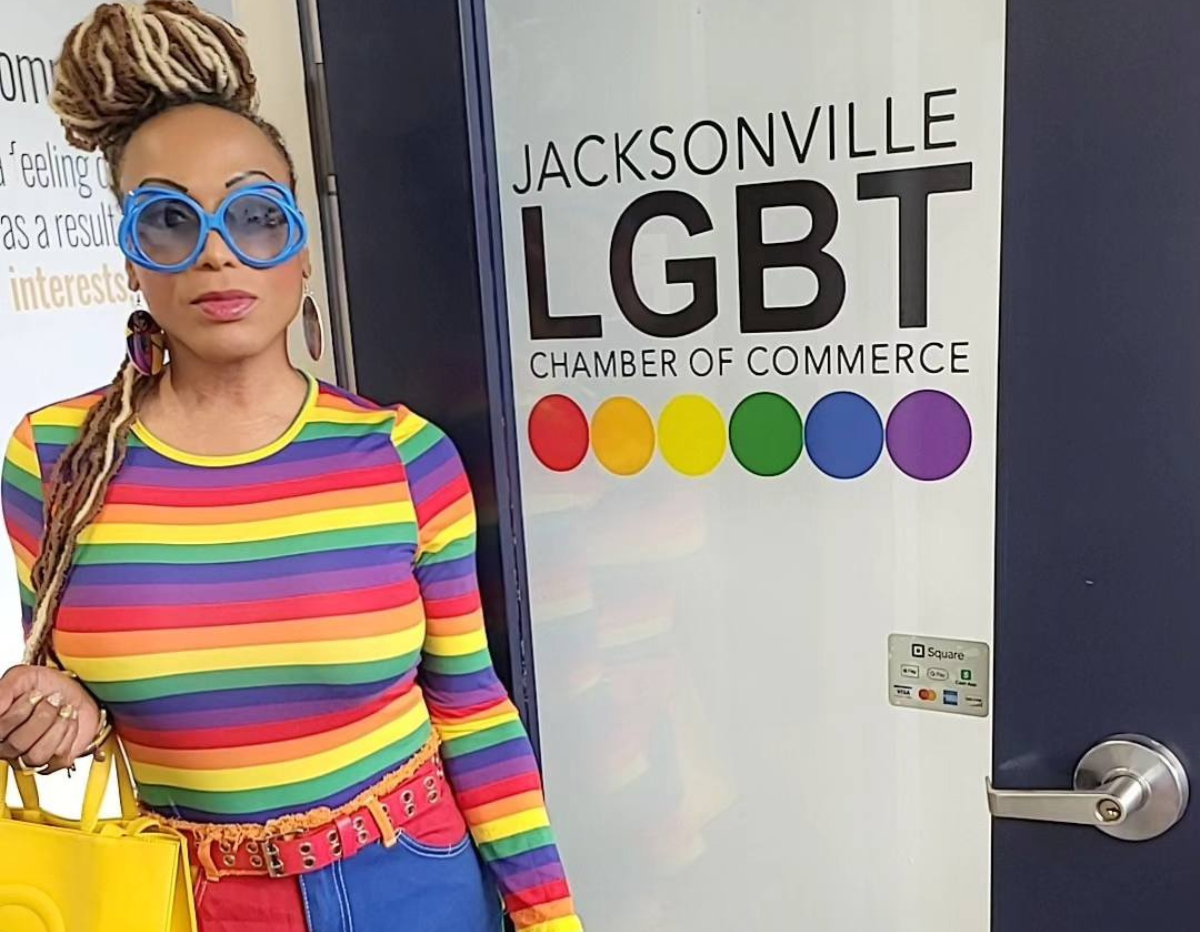
Although LGBTQ+ people are overrepresented in the prison system, their voices and experiences are deeply underrepresented in conversations about transforming justice. This is especially true for transgender people of color, who are disproportionately targeted at alarmingly high rates by the prison system. Both the opaqueness of prisons and the overlooking of this vulnerable population means that the public is not equipped with the knowledge and resources to advocate properly for incarcerated trans people in the face of horrific abuses and medical neglect, including forced detransition.
Black trans women regularly fight for dignity behind bars—not just for the women in their own community, but for every single marginalized person.
“Black trans women have always been on the frontlines for every other cause. But when it comes to trans issues, no one’s on the frontlines for us,” says Paige Mahogany Parks, CEO of Transgender Awareness Project in Jacksonville, Florida.
In 2018, Jacksonville was the murder capital of transgender killings in the country. To compound the harm, the Jacksonville Sheriff’s Office deprioritized community concerns about the string of murders while purposefully deadnaming and misgendering the victims. Transgender Awareness Project fights for the dignity of trans people in all aspects of the community, including bringing attention to the safety of trans people—especially Black trans women—engaging in sex work.
“They need to decriminalize sex work so it can be legal. Making it legal also saves trans women’s lives and stops a lot of harassment, a lot of violence towards trans women if they decriminalize sex work,” says Paige.
Both trans rights advocates like Paige and sex workers of all backgrounds are fighting hard to bring attention to the need for decriminalizing sex work.
“Making sex work legal will save trans lives,” she adds. “Because you know, once a trans woman is arrested for sex work, it stops a lot of things. It goes on her record, so she can’t get a job now because she has a felony.”
Under current conditions, sex workers are in greater danger of experiencing physical violence, overcriminalization, and the loss of economic and housing opportunities due to having a record, sexual abuse, and other kinds of violence by police, and even ICE raids. Decriminalization, which is modeled in New Zealand, protects sex workers, promotes safety, and decreases human trafficking and the spread of sexually transmitted infections (STIs).
With few allies in their corner, trans people regularly have to rely on themselves to create organizations to provide support for incarcerated people. Some of these include the TS Madison Starter House, a reentry home for Black trans women recently opened by television personality and actress TS Madison. Another organization called Black and Pink provides deep community support for incarcerated LGBTQIA2S+ people and people living with HIV/AIDS in an effort to dismantle the prison industrial complex.
When asked what healing looks like in the face of violence, discrimination, and erasure by laws, Paige invites all to engage in an important call to action:
“Healing means to me that society will accept us more. We need to be more visible than we are because we exist and we have existed for many, many, many years. And healing means bringing us all together, you know? Bringing the community together as one for trans people to thrive.”



